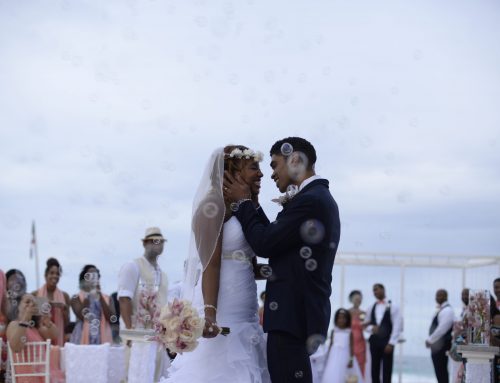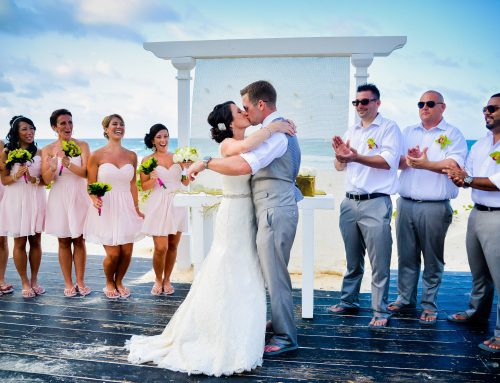Every couple embarks on a unique journey, a story woven with memories, dreams, and promises. One of the most profound moments in this journey is the exchange of wedding vows. These aren’t just words; they are heartfelt commitments, echoing the depth of one’s feelings and the promises for a shared future.
Setting the foundation for a life together, wedding vows are the profound expressions of love that resonate beyond the day they’re spoken, creating ripples throughout a lifetime of shared memories. As you prepare for your special day, understanding the emotional weight and significance of these vows is crucial.
This guide will help you navigate the beautiful task of crafting the perfect vows, ensuring they reflect the essence of your relationship and set the tone for the many chapters yet to be written in your love story.

The Tradition of Wedding Vows
From the ancient civilizations to our modern era, the exchange of vows has been a sacred rite, symbolizing the commitment two individuals make to each other. This tradition, deeply rooted in various cultures and religions, has always been seen as a solemn promise, a verbal contract of sorts, where two souls pledge their love and loyalty.
Over the years, while the essence of vowing commitment remains consistent, the words and rituals have evolved, often blending tradition with personal sentiment. Today, many couples choose to infuse their heritage and personal beliefs into these promises, ensuring they genuinely resonate with their shared journey.
What’s undeniable is the universal truth behind these vows: they serve as the cornerstone of the marital foundation. Whether you’re leaning towards traditional vows or considering a personalized touch, understanding the history and depth of this practice can offer a wellspring of inspiration. After all, in this age-old tradition lies the heart of what it means to commit, to promise, and to love deeply.
Personalizing Your Wedding Vows
In an era where personal touches elevate moments into unique experiences, the trend of customizing wedding vows has grown significantly. While the roots of tradition offer a comforting foundation, personalizing vows adds an unmatched depth and authenticity to the ceremony. It’s about capturing the nuances, the shared jokes, the challenges overcome, and the dreams woven together.
Why Personalize?
Personalized wedding vows have the power to resonate more deeply with the couple and the audience. They paint a vivid picture of the relationship, allowing attendees a glimpse into the couple’s intimate world. Moreover, they can be therapeutic for the couples themselves, serving as a reflection on their journey together and the path they envision ahead.
Personal doesn’t always mean discarding the old for the new. Many couples find a balance, incorporating traditional elements while infusing their own sentiments. For instance, starting with a classic vow and expanding upon it with personal anecdotes or promises can create a harmonious blend of old and new.
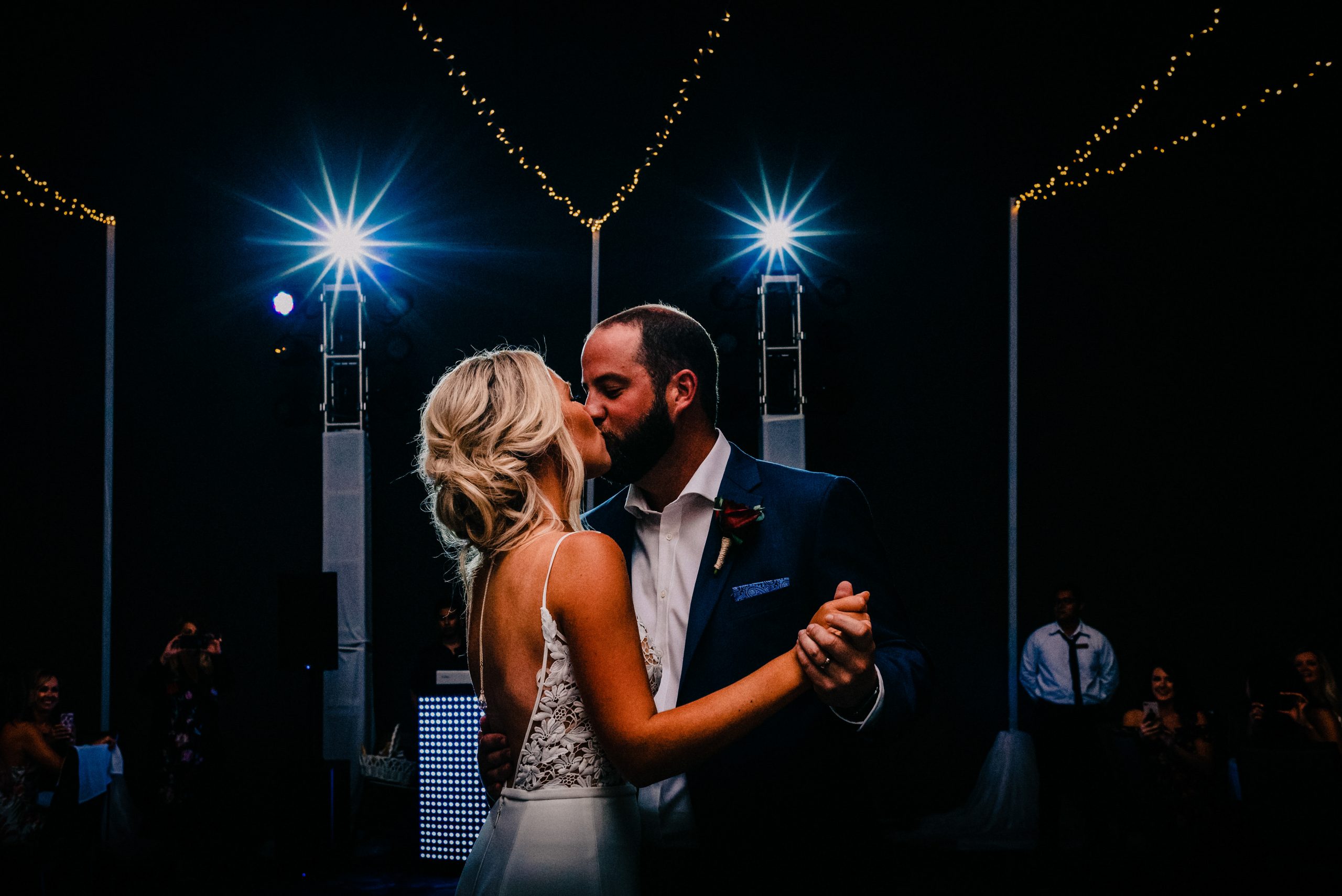
Crafting Your Unique Vows
Begin by reflecting on your journey. What moments stand out? What challenges did you overcome together? What dreams do you share? Jotting down answers to these questions can be a great starting point.
Also, consider the promises you genuinely wish to make. While it’s lovely to promise endless romance, it might feel more authentic to vow patience during hardships, support in individual pursuits, or a commitment to mutual growth.
Lastly, don’t be afraid to be vulnerable. The most touching vows often come from a place of deep emotion, capturing the essence of love in all its rawness and beauty.
Remember, these vows are a mirror of your unique bond. While seeking inspiration from others can be helpful, ensure that your final words ring true to your shared experiences and aspirations. Personalized vows, spoken from the heart, have the power to turn a beautiful ceremony into an unforgettable one.
Practical Tips for Crafting Your Vows
Crafting the perfect wedding vows requires introspection, authenticity, and a touch of creativity. Here are some practical tips to help you navigate this beautiful task:
- Find a Quiet Moment for Reflection:
Before you pen down anything, dedicate some time to reminisce about your relationship. Revisit the highs, the lows, the moments that strengthened your bond, and the dreams you’ve nurtured together. This reflection will provide a foundation for your vows.
- Define the Core Elements:
Consider what’s essential for you to convey. Do you want to make specific promises? Share anecdotes that encapsulate your journey? Or express your aspirations for the future? Identifying these elements will give your writing direction.
- Be Genuine:
While it’s tempting to use elaborate language, your vows will resonate most when they are sincere. Speak from the heart, using words and phrases that genuinely mirror your feelings and relationship.
- Balance Personal Details:
While including personal stories can add depth to your vows, strike a balance. You want your audience to connect with your words without overloading them with intimate details.
- Seek Inspiration but Stay Authentic:
It’s okay to read other vows or poems for inspiration. However, ensure your final vows maintain your unique voice and genuinely represent your relationship.
- Consider Length:
While there’s no strict rule on how long vows should be, aim for conciseness. A few heartfelt lines can be more impactful than a lengthy monologue. If you’re concerned about length, coordinate with your partner to ensure your vows are somewhat symmetrical in duration.
- Practice Aloud:
Reading your vows aloud can help identify any awkward phrases or emotional points where you might get choked up. Practicing ensures a smoother delivery on the actual day.
- Have a Backup:
On the day of your wedding, nerves can play tricks. Write down your vows on a beautiful card or in a small booklet. This not only serves as a backup but also becomes a cherished keepsake from your special day.
- Embrace Vulnerability:
It’s natural to feel emotional or vulnerable when expressing such profound sentiments. Remember, this vulnerability can make the moment even more touching and memorable.
- Review and Revise:
Don’t hesitate to make revisions. As the day approaches, your feelings and thoughts may evolve. Revisiting your vows ensures they truly reflect your emotions at that moment in time.
Crafting your wedding vows is a journey of introspection, love, and commitment. Embrace the process, allowing your love story to shine through every word.
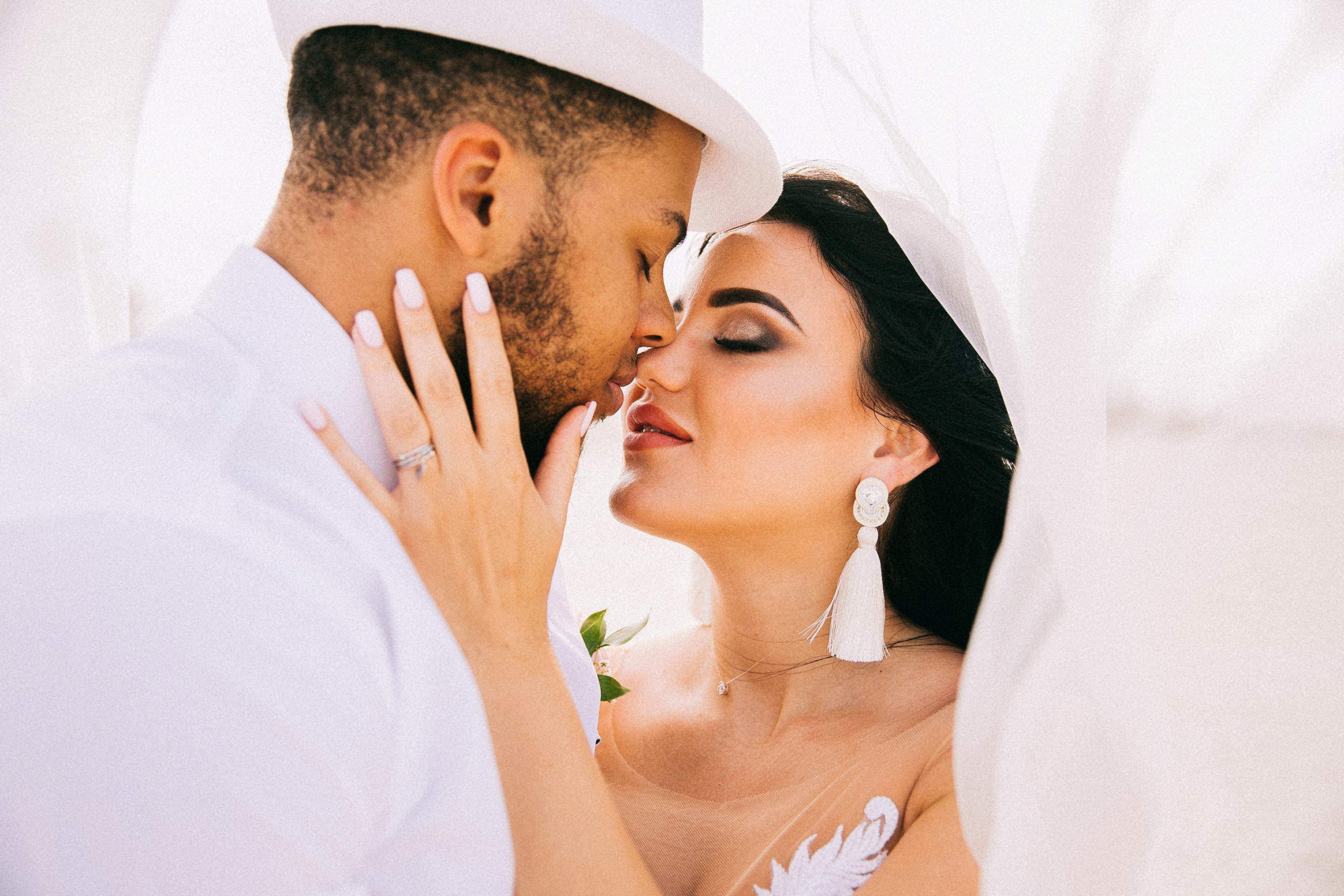
Length and Delivery
Exchanging wedding vows is a pivotal moment in any ceremony. While the content of your vows holds paramount importance, how they are delivered – in terms of length, tone, and style – can significantly enhance their impact. Here’s what to keep in mind as you finalize your vows and prepare for the big day:
- Conciseness is Key:
While you might have a million things to say, remember the audience and the context. Aim for vows that capture the essence of your feelings without being overly long. A good benchmark is between 1 to 3 minutes per person.
- Practice Makes Perfect:
Rehearse your vows multiple times to get a feel for their flow. Practicing will help you manage your pace, inflection, and pauses, ensuring your message is clear and heartfelt.
- Anticipate Emotions:
It’s natural to become emotional during such a significant moment. If you think there’s a high likelihood of tears or a shaky voice, include a few strategic pauses. This will give you a moment to compose yourself if needed.
- Coordinate with Your Partner:
While you don’t have to share the specifics of your vows with each other before the wedding, it’s a good idea to discuss the general length and tone. This ensures a harmonious exchange, with neither partner feeling underprepared or overshadowed.
- Stand Confidently:
Your posture and demeanor convey a lot. Stand tall, make eye contact with your partner, and speak with conviction. This non-verbal communication can amplify the meaning behind your words.
- Keep a Backup:
Despite practicing, it’s not uncommon for nerves to take over. Having a written copy of your vows can be a lifesaver. Plus, it allows you to focus on delivery rather than memory.
- Adjust to the Setting:
If you’re in a vast venue, consider using a microphone. If it’s an outdoor setting, be mindful of external noises that might interfere with your delivery. Always ensure that your audience, and most importantly, your partner, can hear you clearly.
- Breathe:
It might sound obvious, but remember to breathe. Taking measured breaths can help calm nerves, steady your voice, and allow moments of reflection between statements.
- Engage Your Audience:
While your vows are primarily for your partner, remember you have an audience. A glance towards your loved ones, a slight gesture, or a shared laugh can make the moment inclusive and memorable for all present.
- Cherish the Moment:
Above all, be in the moment. This is a once-in-a-lifetime expression of your love and commitment. Relish every second, every word, and every emotion.
Your vows are more than just words; they are a testament to your journey together. Giving due consideration to their delivery ensures they leave an indelible mark on the hearts of all who witness them.
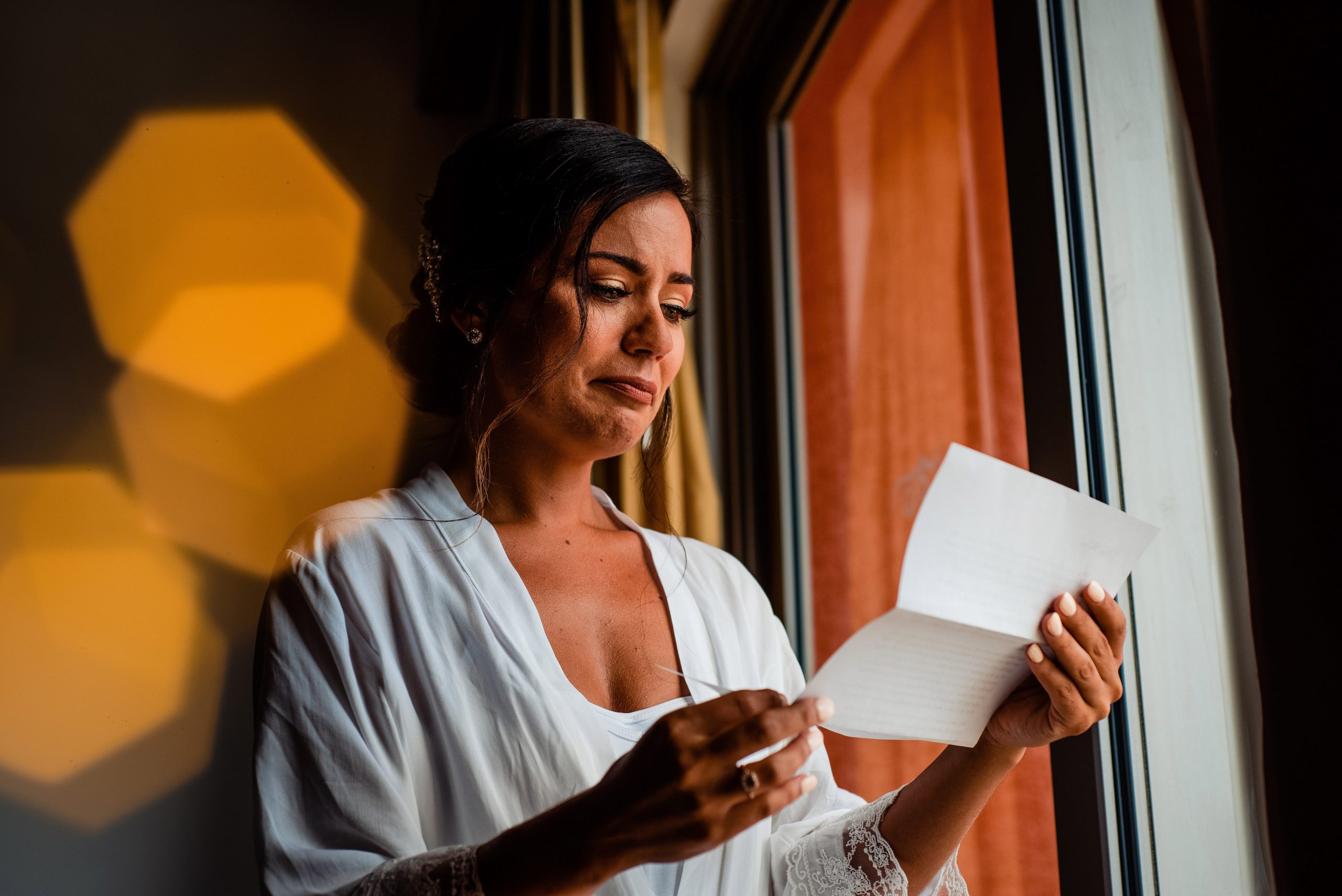
Collaborating and Reviewing with Your Partner
While wedding vows are deeply personal, they are also an exchange between two individuals coming together in union. Hence, ensuring that both sets of vows harmonize with each other can make the ceremony even more poignant. Collaborating and reviewing your vows with your partner, even if just in a general sense, can help ensure your promises align in tone, length, and sentiment.
- Open a Dialogue Early On:
Start discussing your vows several weeks or even months before the wedding. Understand each other’s expectations and decide on a general structure or theme.
- Decide on Individual vs. Joint Vows:
Some couples prefer saying identical vows, reflecting joint commitments, while others opt for individual promises. Discuss your preferences and decide what feels right for both of you.
- Consider Tone and Length:
While you don’t need to reveal every detail, ensuring that your vows are similar in tone (romantic, humorous, serious, poetic) and length can offer a more cohesive experience during the ceremony.
- Respect Each Other’s Choices:
Remember, vows are deeply personal. While you can offer suggestions or insights, it’s essential to respect your partner’s words and emotions.
- Schedule Review Sessions:
Set aside specific times to discuss your progress. These check-ins can be a time to share any concerns, seek advice, or simply reassure each other.
- Keep Some Elements a Surprise:
While collaboration is key, retaining a few surprises can make the actual vow exchange even more special. If you’re comfortable, consider sharing the general themes or promises without revealing the exact wording.
Overcoming Common Fears and Challenges
Writing and reciting wedding vows is a beautiful yet daunting task for many couples. The weight of the moment and the desire to perfectly encapsulate feelings can sometimes lead to anxiety and challenges. Let’s address some common fears and offer solutions to navigate them:
- Fear of Public Speaking:
For many, the idea of speaking in front of a group, regardless of its size, can be nerve-wracking.
Solution: Remember, your vows are primarily for your partner. Focus on them, and consider the audience as mere witnesses to your love story. Practicing multiple times can also boost confidence.
- Struggling to Find the Right Words:
With so many emotions involved, articulating your feelings can be overwhelming.
Solution: Start by jotting down individual memories, promises, and reasons you love your partner. Over time, try connecting these dots to form a coherent narrative. Remember, sincerity trumps eloquence.
- Fear of Being Overly Emotional:
The thought of becoming too emotional or teary-eyed can be a concern.
Solution: It’s okay to show emotion; it’s a testament to the gravity of the moment. But if you’re worried about being overly emotional, take pauses, breathe deeply, and keep tissues handy. Practice can also help you anticipate the moments you might get choked up.
- Worrying About the Audience’s Reaction:
Concerns about whether the vows will resonate with the audience or if they’ll judge can be daunting.
Solution: Your vows are a personal commitment to your partner, not a performance. Stay true to your relationship and your feelings; the sincerity will shine through.
- Comparing with Your Partner:
The fear that one person’s vows might overshadow the other’s can be a genuine concern.
Solution: Discuss the general structure and length with your partner beforehand. This ensures harmony without revealing the specific details, keeping the element of surprise.
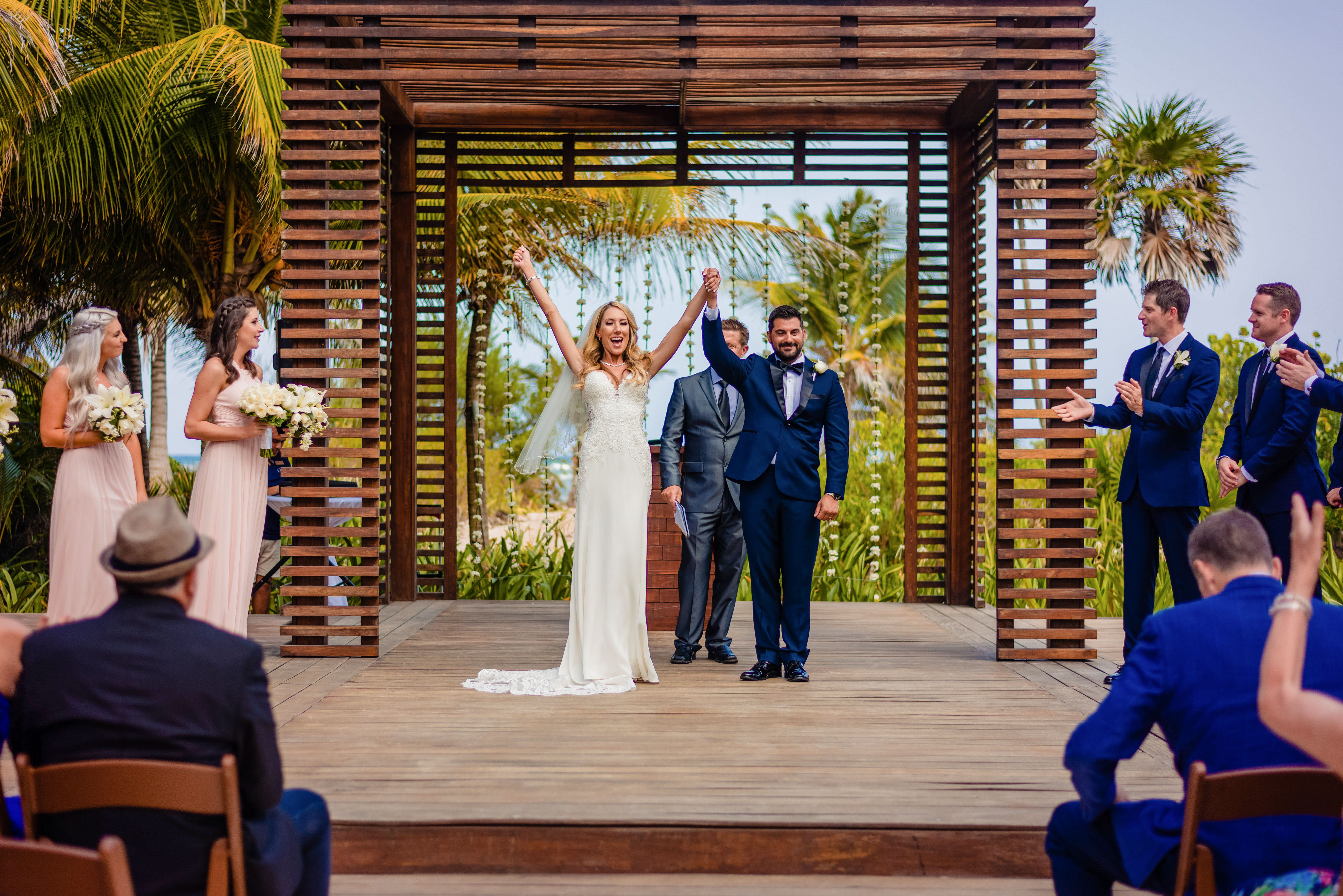
- Fear of Forgetting the Words:
Even with practice, the emotional weight of the day can make one forgetful.
Solution: Have a backup. Keep a written version close by, either with the officiant, a best man/maid of honor, or even in your pocket.
- Overthinking the Perfection Aspect:
Wanting the vows to be absolutely perfect can lead to unnecessary stress.
Solution: Understand that perfection lies in authenticity. Rather than aiming for flawlessness, focus on ensuring your vows are genuine and reflective of your relationship.
- The Pressure of Originality:
The desire to make vows unique and different can be challenging.
Solution: While it’s lovely to be original, it’s okay to take inspiration from sources that resonate with you. Personalize them to fit your relationship.
Overcoming these challenges requires introspection, communication with your partner, and sometimes seeking external guidance or inspiration. Ultimately, the goal is to create vows that reflect the heart of your relationship, and facing these fears is a part of that beautiful journey.
FAQs
Do we have to write our own vows?
No, many couples choose traditional vows or variations of them. Writing your own vows is a personal decision and depends on what feels right for both of you.
How long should our vows be?
There’s no set length, but as a general guideline, aim for about one to two minutes. The key is to ensure they are concise yet meaningful.
Can we include humor in our vows?
Absolutely! Your vows should reflect your relationship. If humor is a significant part of it, it’s entirely appropriate to include.
When should we start writing our vows?
Give yourselves several weeks or even a couple of months before the wedding. This allows time for revisions and ensures you aren’t rushed.
Is it okay to take inspiration from books, movies, or other sources?
Yes, as long as you personalize them and make them relevant to your unique relationship. Always give credit if you’re using a direct quote.
Should we share our vows with each other before the wedding?
It’s a personal decision. Some couples like the surprise, while others prefer to review and ensure their vows complement each other.
- Wedding Checklist for Your Big Day - February 19, 2024
- Wedding Reception on the Beach in Punta Cana - February 9, 2024
- Trash the Dress Photoshoot During Your Wedding Ceremony - January 29, 2024


